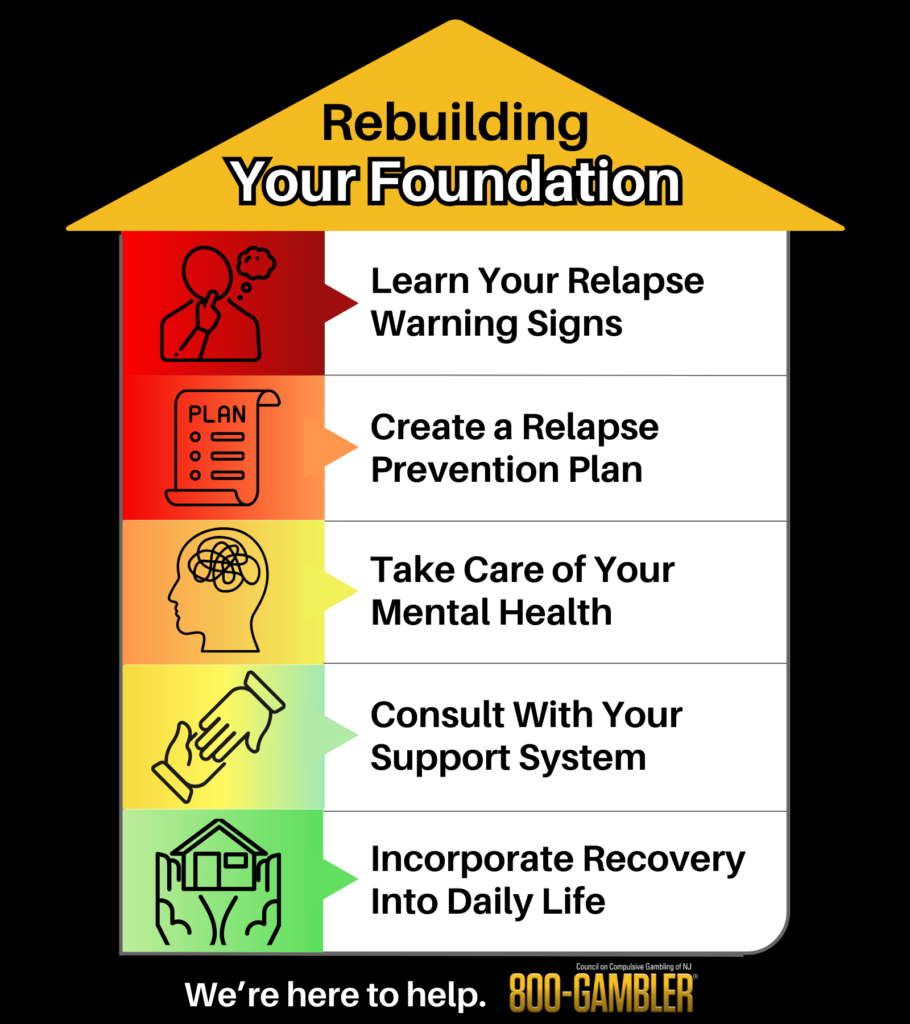One especially challenging part of dealing with a gambling problem is fighting against the temptation to relapse — and the consequences of making that split-second impulse decision. It’s important to remember that experiencing a relapse doesn’t signify failure but rather a hurdle in the journey toward recovery. Here’s a simple guide to bouncing back after you’ve relapsed or helping a friend recover after they’ve experienced relapse themselves.
Understanding Relapse
Often used in the context of substance use disorders, the word relapse occurs when someone returns to a behavior they’ve been trying to change or control, particularly after a sustained period of abstinence. In relation to gambling issues, relapse is when someone who’s been controlling their gambling habits or refraining from gambling begins to gamble excessively again.
While gambling withdrawal isn’t as physical as substance use withdrawal, relapse is still possible, and it’s crucial to understand that for many problem gamblers, encountering a relapse is a part of the recovery process. It’s not a sign of weakness but an indication that adjustments need to be made to the recovery plan.

Learn to Recognize Relapse Signs
Recognizing relapse warning signs early is key to managing them effectively. These signs could include feeling the urge to gamble, finding yourself thinking about gambling more than usual, or starting to gamble small amounts with the belief that it won’t escalate. By being aware of these signs, you can take proactive steps to prevent a full-blown relapse.
Create a Prevention Plan
Creating a relapse prevention plan is a practical step to maintain long-term recovery. This involves identifying potential triggers, establishing coping mechanisms, and outlining what to do if a relapse occurs. The plan should be comprehensive yet flexible, allowing for adjustments as one progresses through their recovery journey.
Take Care of Your Mental Health
Maintaining mental health is a critical aspect of preventing relapse. This isn’t just about handling depression, stress, ADHD, or other mental struggles — it also involves taking care of your physical health, practicing mindfulness, and seeking professional help if needed. When your mental health is in check, you’re better at managing urges and making healthy decisions.
Lean on Your Support System
Your support system plays a significant role in your recovery. This may include family members, friends, therapists, and other people in your life. These individuals can provide emotional support, offer advice, and help you stay accountable. Don’t hesitate to lean on them when you’re struggling or when you notice relapse warning signs.
Support groups like Gamblers’ Anonymous meetings can also be highly beneficial. They provide a safe space where you can share your experiences, hear from others facing similar struggles, and learn coping strategies. They also serve as a reminder that you’re not alone in this journey.
Incorporate Recovery Into Your Daily Life
Incorporating recovery into daily life is crucial for long-term success. This means making lifestyle changes that support your recovery, such as finding new hobbies, establishing a regular routine, and building healthy relationships.
Look to the Future!
It’s important to view relapse as an opportunity for growth rather than a setback. It provides valuable insights into what’s working and what isn’t in your recovery plan. Rather than a total loss of progress, each relapse is a chance to learn and make necessary adjustments to your strategy.
If you or someone you love is struggling with problem gambling, don’t hesitate to reach out to 800-GAMBLER today. Our toll-free, confidential helpline is open around the clock, and we’re ready to help you get the support you need. Remember, every step, no matter how small, brings you closer to your goal of living a healthier, happier life.



